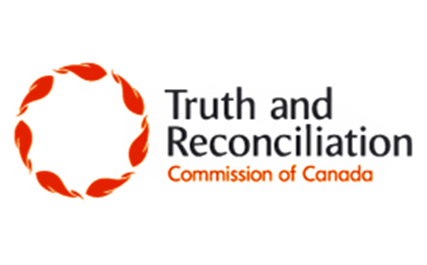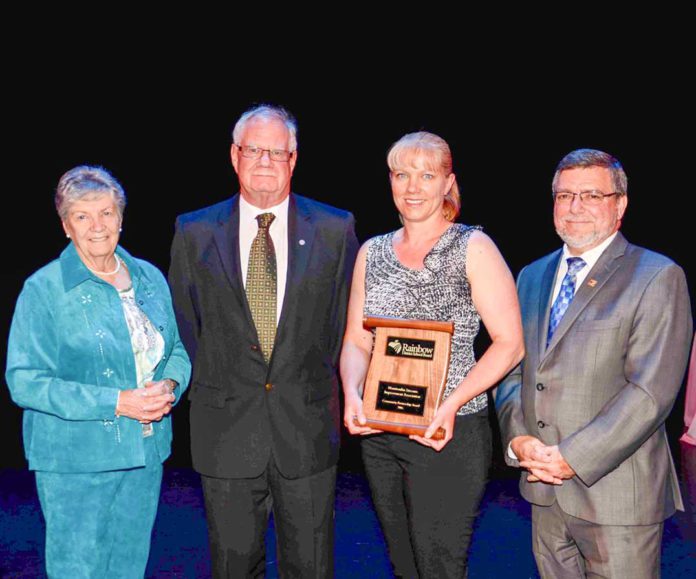QUEEN’S PARK—In an historic meeting between Ontario’s political and aboriginal leaders and one year after the Truth and Reconciliation Report was released, Premier Kathleen Wynne officially apologized to Ontario’s indigenous peoples Monday of this week in the Ontario legislature, making a pledge of reconciliation.
“Indigenous Peoples are the original occupants of this land we call Ontario and, over thousands of years, they developed distinct languages, cultures, economies and ways of life,” the premier began.
“…Our shared history begins around 400 years ago. When Europeans first arrived, the generous partnership of indigenous peoples helped them establish profitable enterprises and settlements. In 1763, the Royal Proclamation confirmed the original occupancy of indigenous peoples and paved the way for nation-to-nation treaties between the British Crown and indigenous peoples. Treaties were negotiated and signed with the intent of delivering mutual benefits.”
“…Treaties granted us land to live on and water to drink,” the premier continued. “They are the foundation on which the short history of our country has carried forward—a history in which every generation has built a better life by building on the achievements of the past.”
“But it’s only one side of our story,” Premier Wynne added. “For indigenous people in Ontario, this same history created a very different reality. Despite the promise of early treaties and the respectful, nation-to-nation partnerships they established, indigenous peoples became the target of colonial policies designed to exploit, assimilate and eradicate them. Based on racism, violence and deceit, these policies were devastatingly effective. They disempowered individuals and disenfranchised entire communities. When Canada became a country 149 years ago, the legacy of violent colonialism only gathered momentum.”
The premier spoke of the role of residential schools to “take the Indian out of the child,” by removing indigenous children from their homes and systematically stripping them of their languages, cultures, laws and rights. “Children were physically, emotionally and sexually abused. Many died.”
“These heartbreaking stories are hard to hear,” Premier Wynne continued. “For generations of indigenous people, these stories were their lives. Canada’s residential schools are closed, but they have been closed for not even one generation. Echoes of their racist, colonial attitudes can still be heard. And the echoes of a society-wide, intergenerational effort of cultural genocide continue to reverberate loudly and painfully in the lives of indigenous people today.”
The premier talked of the gap that exists between Ontario’s indigenous people and the rest of its population. “It is a gap that swallows lives and extinguishes hope across generations. For a long time, indigenous peoples’ calls for justice could not be heard across this yawning gulf because Canada did not want to hear them. It is thanks to the resiliency of those who endured the abuses of the past that we are finally listening.”
“Thank you for finding the strength and courage to come forward and tell your stories — and the stories of those who were lost,” the premier began her apology. “In opening our eyes, you have given us this chance to move forward as partners and the opportunity to say we are sorry. So before I go on, I want to show my respect for all the survivors and all the victims by offering a formal apology for the abuses of the past.”
“As Premier, I apologize for the policies and practices supported by past Ontario governments and for the harm they caused. I apologize for the province’s silence in the face of abuses and deaths at residential schools. And I apologize for the fact that the residential schools are only one example of systemic, intergenerational injustices inflicted upon Indigenous communities throughout Canada.”
“By adopting policies designed to eradicate your cultures and extinguish your rightful claims,” the premier added, “previous generations set in motion a force so destructive that its impact continues to reverberate in our time. And so I want to apologize for all of this by saying I am sorry for the continued harm that generations of abuse is causing to indigenous communities, families and individuals.”
“No apology changes the past, nor can the act of apology alone change the future. In making this apology, as in making the Political Accord last summer, I hope to demonstrate our government’s commitment to changing the future by building relationships based on trust, respect and indigenous peoples’ inherent right to self-government. The act of apology is not the end, nor is it the beginning. It is but one step on the journey to reconciliation and healing that we are committed to walking together.”
The premier then highlighted the report released Monday titled ‘The Journey Together’ that outlines how Ontario is responding to the Truth and Reconciliation Commissions findings and call to action. The province had pledged up to $20 million over three years to: Work with Indigenous partners to establish a commemorative monument in Toronto—dedicated to residential school survivors—as a site of learning, healing and reconciliation; support restoration of the Mohawk Institute Residential School and work with indigenous partners to develop an interpretation centre; identify death records of “lost children” who attended residential schools and contribute to the National Centre for Truth and Reconciliation archives, locate burial sites and repatriate remains when requested and/or provide memorial ceremonies and markers; work to waive fees for Indigenous people seeking to reclaim traditional names, and honour Indigenous traditions by accommodating the use of single names; and address systemic racism and discrimination directed against Indigenous peoples through an Indigenous-Informed Anti-Racism Strategy.
The province has also promised up to $150 million over three years to help close gaps and remove barriers by: establishing up to six new or expanded Indigenous Mental Health and Addictions Treatment and Healing Centres; helping stop the cycle of intergenerational trauma by investing in mental health and wellness programs; increasing the number of licensed child care spaces and culturally relevant programming off-reserve; expanding child and family programs on-reserve and, through indigenous and federal partners, make supports available in more communities; recreation-based programming, work with remote high-need Indigenous communities to identify community priorities for children, youth and families; supporting culturally based suicide prevention strategies for children and youth, and provide crisis intervention, as needed; exploring reclassifying First Nations/federally operated schools to enhance collaboration between the provincially funded education system and First Nation schools; and developing an action plan for responding to social emergencies in Northern First Nation communities.
The province also plans to create a culturally relevant and responsible justice system by: creating more victim services programs for indigenous people; establishing an Indigenous Language Courts pilot project to help break down language barriers and increase access to justice; increasing funding to Community Justice Programs that focus on healing and cultural restoration; developing culturally appropriate programs, including community supervision, to provide support to indigenous people accused of crime; hosting a Gladue summit to identify service gaps in the justice system; enhancing the number of Gladue report writers and Gladue aftercare workers; and enhancing healing services and cultural supports for indigenous inmates in custody and offenders under community supervision.
Ontario has also pledged to support indigenous cultural revitalization and to reconcile relationships through the development an Indigenous Cultural Revitalization Fund that would support cultural activities and programming in indigenous communities, including on-reserve and in urban centres; host an indigenous languages symposium with indigenous partners to review current programs, and to identify community priorities and supports needed for indigenous languages; support youth cultural camps in indigenous communities; create a traditional medicine garden on government-owned property in Toronto; leading by example and take active steps to apply a model of reconciliation on a daily basis; changing the name of the Ministry of Aboriginal Affairs to the Ministry of Indigenous Relations and Reconciliation; reflect the term ‘indigenous’ in government ministries and programs, where appropriate; discourage the use of names that are considered offensive to indigenous people in organizations funded by the government; engage with indigenous partners on approaches to enhance participation in the resource sector by improving the way resource benefits are shared; and work with the federal government to address the United Nations Declaration on the Rights of Indigenous Peoples.
“Mr. Speaker, indigenous partners, my fellow Ontarians—there is no more denying the past or hiding from the truth,” the premier said. “The duty owed to indigenous partners is enshrined in our laws and in our values as Canadians. Building trusting, respectful relationships with indigenous peoples and taking steps to end intergenerational cycles of trauma and inequality—this is our present task. One day, it will be history.”
“With the steps we are taking together to build a country that lives up to its laws, its values and its reputation as a force for good in the world—we are walking a path that connects us across generations. We are undoing the harm caused by our past, and building a society where future generations of indigenous and non-indigenous can walk together as equals—living in peace and harmony on the land we now share.”
“Walking this journey together, we will not fail,” the premier concluded.
Following the apology Patrick Brown, leader of the Official Opposition Progressive Conservative party also spoke with NDP leader Andrea Horwath also addressing the legislature and the invited guests of Ontario Regional Chief Isadore Day; Métis Nation of Ontario President Margaret Froh; Ontario Federation of Indigenous Friendship Centres President Sheila McMahon; President of the Ontario Native Women’s Association and of the Native Women’s Association of Canada, Dawn Lavell-Harvard of Wikwemikong; Inuit Tapiriit Kanatami President Natan Obed; Cree elder and residential school survivor Andrew Wesley; elder Jim Dumont, elder Shelley Charles and Métis Senator Verna Porter-Brunelle. Each of the guests in turn spoke following the official apology.
“I welcome the comments and commitments by the Ontario government to work with indigenous partners to address the legacy of the Residential Schools by addressing the recommendations of the Truth and Reconciliation Commission,” Anishinabek Grand Council Chief Madahbee said following the apology.
“I look forward to working in a true partnership with Premier Wynne and her government to make the 94 recommendations a reality and she reminds participants today that the critical parts of the Truth and Reconciliation Commission Report are the Calls to Action,” the grand chief continued. “I remind participants that there have been many studies of our peoples and issues over the decades—the 1983 Penner Report on Self Government, the 1992 Charlottetown Accord, the 1996 Report of the Royal Commission on Aboriginal Issues are all examples of good work but much remains to be done.”
“Most of the recommendations still sit on shelves,” Chief Madahbee said. “I urge everyone to move quickly to action and to work to identify immediate priorities, set critical paths that we can advance our issues and take action to implement them. I look forward to the challenge of working together to implement the Truth and Reconciliation Commission Calls to Action. I also remind participants that there are other processes to help us achieve our goals as well, including Restitution, Restoration and Reclamation.”




